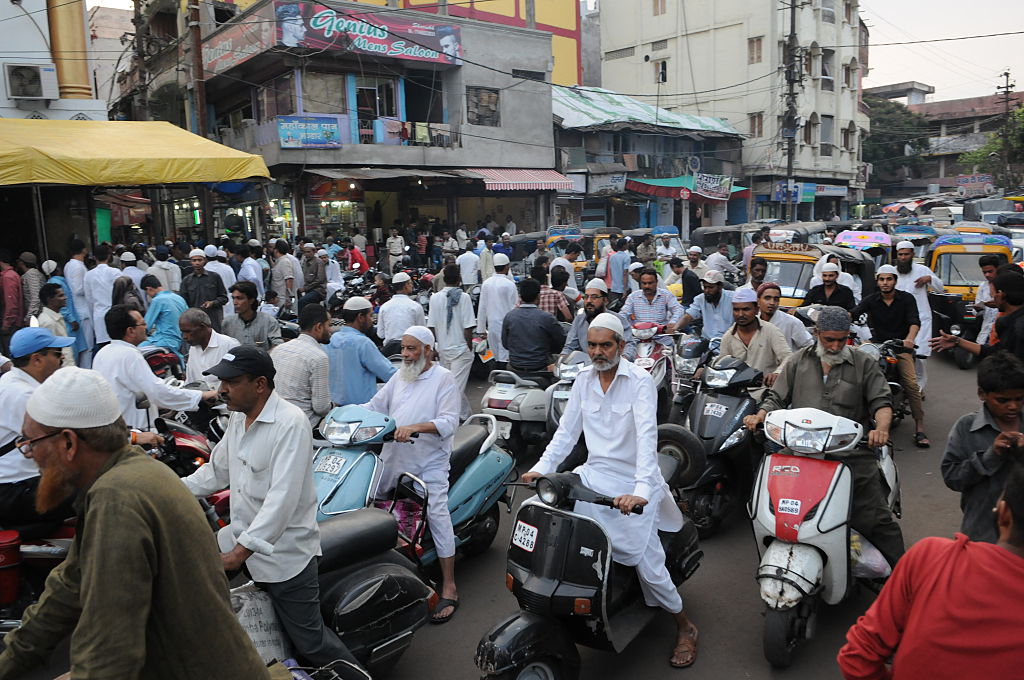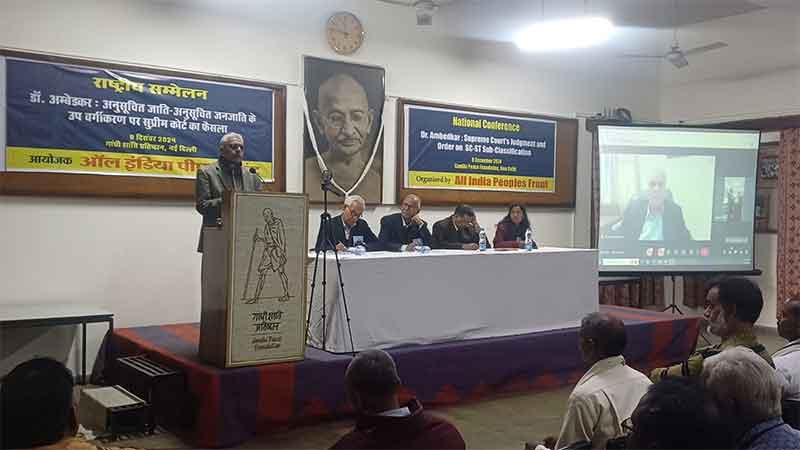
Background
The issue of reservation in India has been a subject of intense debate and scrutiny for decades. Originally introduced to address historical injustices faced by marginalized communities, particularly Scheduled Castes (SCs) and Scheduled Tribes (STs), reservation policies aimed to provide these communities with better educational and employment opportunities, promoting social and economic equality. Over time, the scope of reservations has expanded to include Other Backward Classes (OBCs) and economically weaker sections (EWS). Despite these measures, the implementation and efficacy of reservation policies have remained contentious, especially regarding sub-classification within SCs and STs.
Reservation policies were initially framed with the intent to uplift the most disadvantaged groups, providing them with opportunities to overcome historical oppression and discrimination. These policies were rooted in the idea of compensatory justice, aimed at leveling the playing field. However, the journey of reservation policies in India has been far from straightforward, encountering numerous legal, social, and political challenges.
The Vision of Dr. B.R. Ambedkar
Dr. B.R. Ambedkar, a principal architect of the Indian Constitution, was a staunch advocate for social justice and the rights of marginalized communities. His vision for an equitable society was deeply rooted in the principles of liberty, equality, and fraternity. Ambedkar believed that for true social justice to be achieved, systemic changes were necessary to dismantle the entrenched caste hierarchy that perpetuated discrimination and inequality.
Ambedkar’s advocacy for reservation policies was not just about providing temporary relief to marginalized communities but about creating an inclusive society where everyone had equal opportunities to succeed. He saw reservations as a tool to correct historical wrongs and to ensure that the most oppressed sections of society could access education, employment, and political representation. Ambedkar’s thoughts on social justice continue to be a guiding force in the ongoing debates on reservation policies in India.
The Issue
The primary issue revolves around the constitutional permissibility of sub-classification within SCs for reservation purposes. The crux of the debate is whether such sub-classification aligns with the principles of equality enshrined in the Constitution. The landmark case that brought this issue to the forefront was E.V. Chinnaiah v. State of Andhra Pradesh, wherein the Supreme Court ruled that sub-classification within SCs was unconstitutional. This judgment has faced criticism and calls for reconsideration, particularly in light of subsequent legislative actions and empirical evidence suggesting intra-caste disparities.
Relevant Constitutional Provisions
Several constitutional provisions are pertinent to the discussion on reservation and sub-classification:
- Article 14: Guarantees equality before the law and equal protection of the laws within the territory of India.
- Article 15(1): Prohibits discrimination on grounds of religion, race, caste, sex, or place of birth.
- Article 15(4): Allows the State to make special provisions for the advancement of socially and educationally backward classes, including SCs and STs.
- Article 16(1): Ensures equality of opportunity in public employment.
- Article 16(4): Permits the State to make provisions for the reservation of appointments or posts in favor of any backward class of citizens which, in the opinion of the State, is not adequately represented in the services under the State.
- Article 341: Empowers the President to specify the castes, races, or tribes to be deemed as SCs.
These provisions collectively aim to balance the need for equality with the necessity of affirmative action to address historical injustices. However, their interpretation and implementation have led to significant debates and legal challenges, particularly concerning the extent and manner in which reservations should be applied.
Analysis
Historical Context and Empirical Evidence
Historically, the SCs have been subjected to severe social discrimination and economic deprivation. However, empirical studies and commissions, such as the Ramachandran Raju Commission, have highlighted that not all sub-groups within the SCs have benefited equally from reservation policies. Certain sub-groups, like the Balmikis and Mazhabi Sikhs, have remained significantly more backward compared to others. This disparity raises questions about the blanket approach to reservation and the need for a more nuanced policy.
The uneven distribution of benefits among various sub-groups within SCs indicates that the existing reservation system may not be effectively addressing the needs of the most marginalized. This has led to calls for a more tailored approach that considers the unique circumstances and challenges faced by different sub-groups within the SCs.
Judicial Interpretations
The Supreme Court’s ruling in E.V. Chinnaiah v. State of Andhra Pradesh was a significant judicial interpretation of the reservation policy. The Court held that sub-classification within SCs was unconstitutional as it violated the principles of equality. However, this judgment has been critiqued for not considering the socio-economic heterogeneity within the SCs. The subsequent judgment in the Indra Sawhney case (also known as the Mandal Commission case) recognized the need for sub-classification within OBCs, which has further fueled the debate on the applicability of similar principles to SCs.
In the Indra Sawhney case, the Supreme Court upheld the validity of the OBC reservations but emphasized the need for sub-classification within OBCs to ensure that the benefits reached the most disadvantaged sections. This ruling underscored the importance of a nuanced approach to reservations, considering the internal disparities within broader categories.
State Of Punjab And Ors. v Davinder Singh And Ors. C.A. No. 2317/2011
In a significant development, the Supreme Court addressed the issue of sub-classification within SCs in the case of State Of Punjab And Ors. v Davinder Singh And Ors. (C.A. No. 2317/2011). The Court upheld the constitutional validity of sub-classification within SCs for reservation purposes, marking a departure from the E.V. Chinnaiah judgment. The Court emphasized that the principle of equality enshrined in the Constitution does not prohibit the State from sub-classifying SCs to ensure that the benefits of reservation reach the most disadvantaged sub-groups.
The judgment in State Of Punjab And Ors. v Davinder Singh And Ors. acknowledged the empirical evidence of intra-caste disparities and recognized the need for a more equitable distribution of reservation benefits. This decision has been hailed as a progressive step towards achieving substantive equality and addressing the nuanced socio-economic realities within the SCs.
Legislative Actions
In response to the perceived inequities, several state legislatures have enacted laws for sub-classification within SCs. For instance, the Punjab Scheduled Castes and Backward Classes (Reservation in Services) Act, 2006, and the Tamil Nadu Arunthathiyars (Special Reservation of seats in educational institutions including private educational institutions and of appointments or posts in services under the State within the Reservation for the Scheduled Castes) Act, 2009, introduced sub-quotas within the SC reservation. These legislative actions aimed to ensure that the most marginalized sub-groups within the SCs also receive the benefits of affirmative action.
These state-level initiatives reflect a growing recognition of the need for more granular reservation policies that address the specific needs of different sub-groups. However, they also raise questions about the consistency and uniformity of reservation policies across the country.
Competing Visions of Equality
The debate on sub-classification touches upon competing visions of equality:
- Formal Equality: This vision advocates for treating all individuals and groups equally without any differentiation. The Chinnaiah judgment aligns with this vision by opposing sub-classification within SCs.
- Substantive Equality: This vision supports differential treatment to achieve actual equality in outcomes. Proponents argue that without sub-classification, the benefits of reservation might not reach the most disadvantaged sub-groups within the SCs. This approach aligns with the judgments in cases like Indra Sawhney and State Of Punjab And Ors. v Davinder Singh And Ors.
The tension between formal and substantive equality reflects broader philosophical debates about the nature and purpose of equality. While formal equality emphasizes uniform treatment, substantive equality focuses on achieving equitable outcomes, even if this requires different treatment for different groups.
Efficiency of Reservation
The efficiency of reservation policies is also a crucial consideration. Empirical evidence suggests that sub-classification can help in better targeting and ensuring that the benefits of reservation policies reach those who need them the most. Without sub-classification, dominant sub-groups within the SCs might monopolize the benefits, leaving the more disadvantaged sub-groups further behind.
Studies have shown that in the absence of sub-classification, the more privileged sections within the SCs tend to secure a disproportionate share of the reserved benefits. This undermines the original intent of the reservation policy, which is to uplift the most disadvantaged.
Constitutional Amendments and Judicial Review
To address the complexities and nuances of reservation policies, there have been calls for constitutional amendments and a re-examination of judicial precedents. The scope for judicial review remains a critical aspect, as courts play a pivotal role in interpreting the Constitution and ensuring that policies align with constitutional principles.
The evolving jurisprudence on reservation policies highlights the dynamic nature of constitutional interpretation. Courts have the challenging task of balancing the principles of equality, justice, and affirmative action while considering the changing social and economic landscape.
The Legacy of Dr. B.R. Ambedkar on Social Justice
Dr. B.R. Ambedkar’s thoughts on social justice provide a profound framework for understanding and addressing the issues surrounding reservation policies in India. Ambedkar’s vision was rooted in the belief that true social justice could only be achieved through structural changes that addressed the systemic inequalities embedded in Indian society.
Ambedkar argued that caste-based discrimination was not merely a social issue but a profound human rights violation that needed to be addressed through comprehensive legal and political reforms. His work on the Indian Constitution was driven by the goal of creating a society where every individual, irrespective of caste, had equal opportunities to succeed.
Ambedkar’s advocacy for reservations was part of his broader strategy to dismantle the caste system and promote social mobility among the oppressed. He believed that reservations in education and employment were essential to break the cycle of poverty and exclusion that trapped Dalits and other marginalized communities.
Ambedkar’s emphasis on education as a tool for empowerment was particularly significant. He believed that access to quality education was the key to achieving social justice and economic independence. By ensuring that Dalits and other marginalized groups had access to educational opportunities, Ambedkar aimed to create a level playing field where merit could truly flourish.
Subscribe to Our Newsletter
Get the latest CounterCurrents updates delivered straight to your inbox.
Conclusion
The issue of sub-classification within SCs for reservation purposes is a multifaceted and complex one. It involves balancing the principles of formal and substantive equality, considering historical injustices, and addressing current socio-economic disparities. While the Supreme Court’s ruling in E.V. Chinnaiah v. State of Andhra Pradesh opposed sub-classification, subsequent legislative actions and empirical evidence suggest that sub-classification is essential to ensure that the benefits of reservation policies reach the most disadvantaged sub-groups within the SCs. The landmark judgment in State Of Punjab And Ors. v Davinder Singh And Ors. represents a significant step towards achieving substantive equality and addressing the nuanced realities of caste-based discrimination in India.
Sumit Kr Gupta, Advocate, Delhi High Court














































